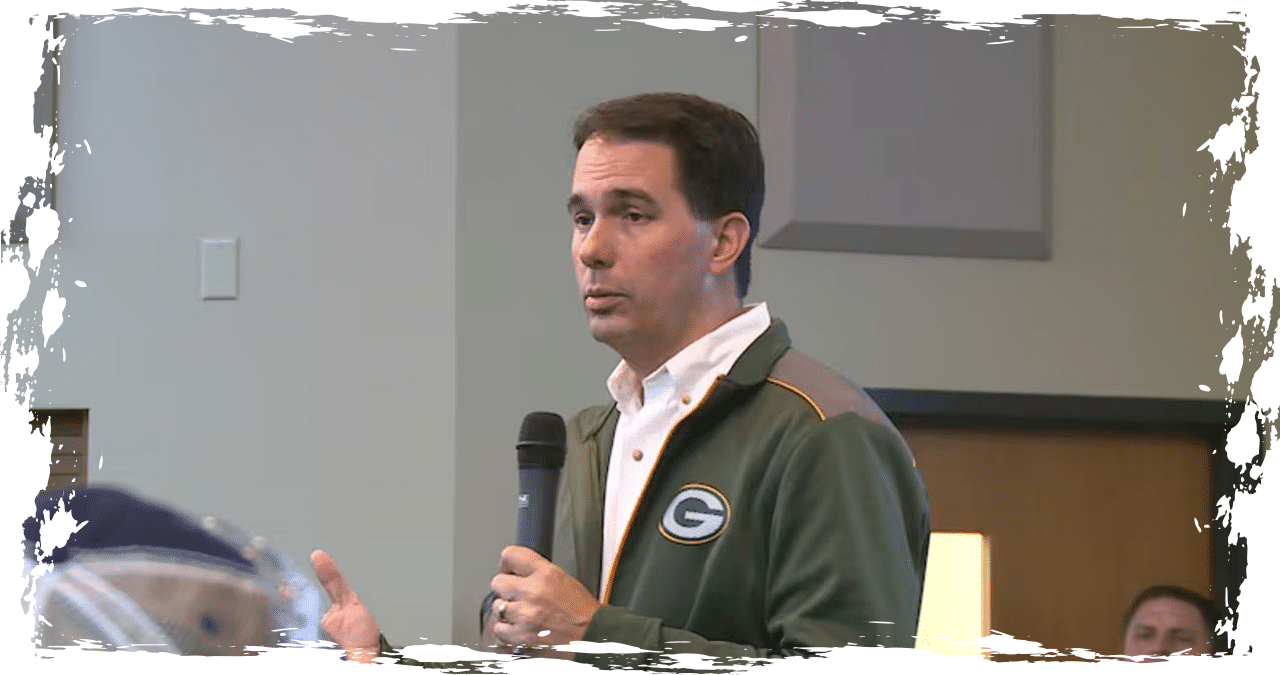In Madison, Wisconsin, a judge who is presiding over a legal challenge brought by unions attempting to reverse Wisconsin’s law that restricts collective bargaining for public employees has come under scrutiny. It has been revealed that the judge appears to have signed a petition in 2011, calling for the recall of then-Governor Scott Walker due to dissatisfaction with the aforementioned law.
Dane County Circuit Judge Jacob Frost is listed as the signatory on the petition, and his signature can be found alongside the address where he resided at the time, as indicated by property records. Notably, his name is positioned just above that of his current wife. This information was initially brought to light by conservative WISN-AM radio show host Dan O’Donnell, who shared the details of the signature in a recent report.
Judge Frost was appointed to the bench in 2020 by Democratic Governor Tony Evers, who defeated Walker in 2018. At the time of the recall petition in 2011, Frost was working as a private practice attorney after recently graduating from law school in 2010.
Frost appeared in court on Wednesday and did not promptly reply to a message left at his office.
Judge Frost, in charge of the case, held a hearing on Tuesday afternoon in response to a motion filed by the Republican-controlled Legislature. The motion sought to dismiss the lawsuit. The judge stated that he would announce his decision in the upcoming weeks.
During Walker’s time as governor, one of the defining moments was the passing of a law known as Act 10 in 2011. This legislation had a significant impact as it essentially put an end to collective bargaining for almost all public employees.
Anger regarding the law sparked a movement to remove Walker from his position. A significant number of signatures were collected, leading to a recall election in 2012, which Walker ultimately won. Building upon this victory and his contentious battle with unions, he later made an unsuccessful attempt to secure the Republican presidential nomination in 2016.
Evers, who served as the state education secretary in 2011, has also signed the recall petition. In a statement to reporters on Wednesday, he expressed his belief that Frost should not recuse himself from the case solely based on the fact that he had signed the petition.
According to Evers, recusal can be seen as a significant setback for the judiciary. He believes that it is crucial to allow the process to unfold naturally and for everyone involved to trust in the integrity of the system. Taking a step back and allowing the system to function as intended is essential.
Over twenty Wisconsin judges, as confirmed by Gannett Wisconsin Media, added their names to the recall petition. These judges maintained that their participation was within their constitutional rights and did not violate the Wisconsin Code of Judicial Conduct.
The code does not explicitly mention recall petitions, but it does state that judges are prohibited from engaging in political party or candidate activities and should avoid any actions that may be perceived as improper.
In the past, there has been an instance where a judge who signed the petition was involved in a lawsuit connected to a law supported by Walker.
Then, Dane County Judge David Flanagan, who had signed the petition, came under fire for not disclosing his support for the recall prior to issuing a temporary restraining order against a voter ID law backed by Walker. The Wisconsin Republican Party filed a complaint with the state Judicial Commission, contending that Flanagan should have disclosed his signature on the petition.
Wisconsin Supreme Court Justice Janet Protasiewicz signed the recall petition, which played a significant role in the liberals gaining majority control of the seven-person court in 2023. During the campaign, she expressed her belief that Act 10 is unconstitutional and mentioned that she would contemplate recusing herself from any case that challenges it.
It is highly probable that the case Frost is presiding over will reach the state Supreme Court.
The lawsuit filed by unions contends that the law grants unconstitutional exemptions to firefighters and other law enforcement agencies, while still imposing its effects on almost all other public employees.
The attorneys representing the suing unions and the Legislature did not respond to messages seeking comment about Frost’s apparent petition signature on Wednesday.



